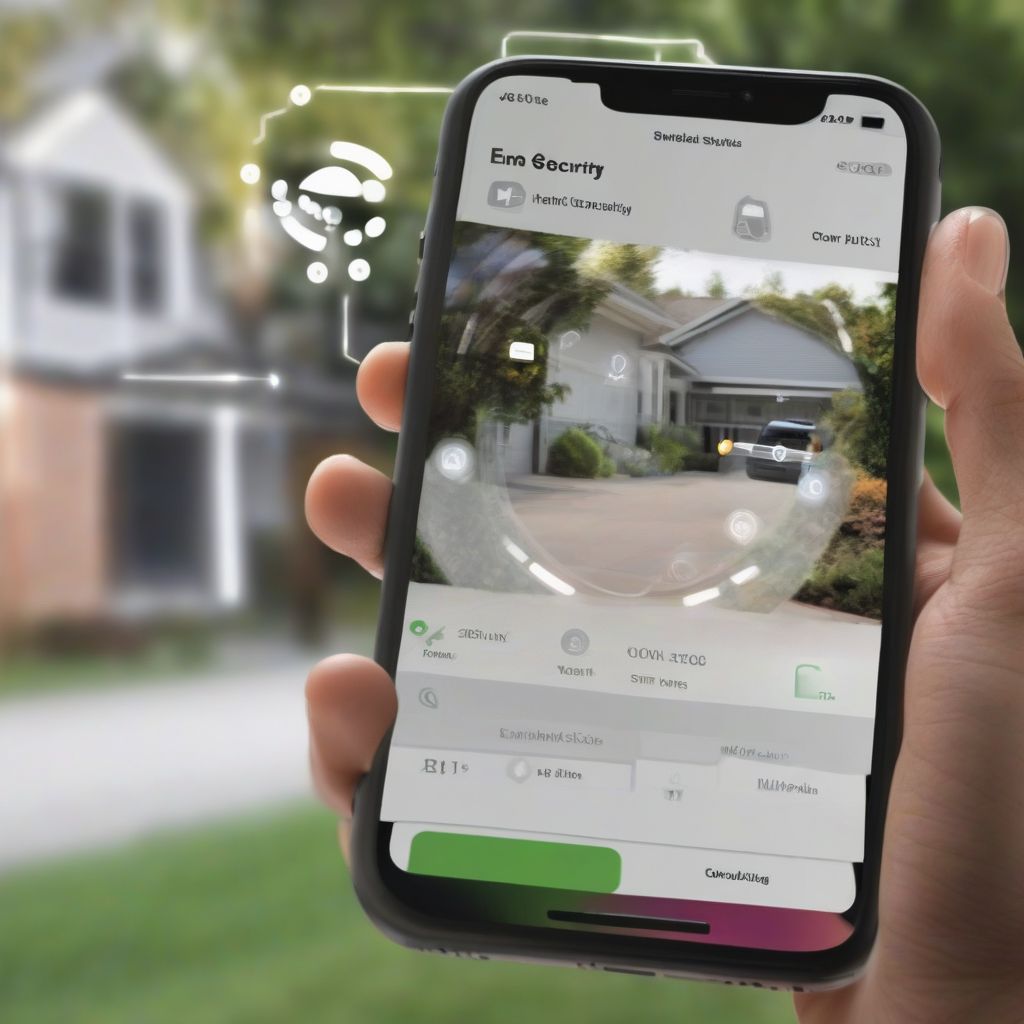In today’s world, ensuring the safety and security of our homes and loved ones is paramount. Installing a home security system is a crucial step towards deterring crime and creating a safe haven for you and your family. This comprehensive guide delves into the intricacies of installing home security, providing you with the knowledge and resources to make informed decisions about safeguarding what matters most.
Understanding Home Security Systems
A home security system acts as a vigilant guardian, utilizing a network of devices to monitor your property and alert you to any potential threats. These systems typically comprise:
- Control Panel: The brain of the system, managing all components and communications.
- Sensors: Strategically placed to detect intrusions, motion, or environmental changes like smoke or flooding.
- Alarms: Audible and visual deterrents that activate upon detecting a breach.
- Surveillance Cameras: Provide real-time monitoring and recorded footage of your property.
- Monitoring Service: A professional team that receives alerts and dispatches authorities in case of an emergency.
Evaluating Your Security Needs
Before diving into installation, take the time to assess your specific security requirements:
- Property Type: The layout and size of your home influence the type and number of sensors and cameras needed.
- Neighborhood Crime Rates: Researching local crime statistics helps determine the level of security required.
- Lifestyle: Consider factors like frequent travel or having valuable possessions that might require additional protection.
- Budget: Home security systems vary in cost, so determine a realistic budget for equipment and potential monitoring fees.
DIY vs. Professional Installation
The decision to install a home security system yourself or hire professionals depends on several factors:
DIY Installation:
- Cost-Effective: Saves on installation fees.
- Flexibility: Allows for customization and gradual system expansion.
- Technical Proficiency: Requires basic technical skills and comfort with wiring and configurations.
Professional Installation:
- Expertise: Ensures correct placement of sensors and system configuration.
- Time-Saving: Professionals handle the entire installation process efficiently.
- Warranty: Many companies offer warranties on equipment and labor.
Essential Features to Consider
Modern home security systems offer an array of features to enhance protection:
- Wireless Connectivity: Allows remote control and monitoring via smartphones or computers.
- Mobile App Integration: Provides instant notifications and system management on the go.
- Environmental Monitoring: Detect smoke, carbon monoxide, or flooding, adding an extra layer of safety.
- Smart Home Integration: Seamlessly connects with other smart devices, such as smart locks or lighting, for enhanced automation and convenience.
 Home Security Mobile App
Home Security Mobile App
Legal Considerations
Familiarize yourself with any local regulations or permits required for installing security cameras or alarms in your area. Some jurisdictions have specific guidelines regarding the placement and usage of surveillance equipment.
Maintenance and Monitoring
Once your home security system is installed, routine maintenance is vital for optimal performance:
- Regularly test: Conduct periodic tests of all sensors, alarms, and cameras.
- Change batteries: Replace batteries in sensors and detectors as recommended by the manufacturer.
- Clean lenses: Ensure camera lenses are clear from dust or debris for optimal video quality.
- Professional inspections: Consider scheduling annual inspections with a security professional to identify and address any potential issues.
Conclusion
Investing in a home security system provides invaluable peace of mind, deterring crime and safeguarding your loved ones and belongings. By carefully considering your security needs, exploring available options, and prioritizing regular maintenance, you can create a secure and protected environment for years to come. Remember to consult with reputable security professionals and legal resources to ensure your chosen system aligns with local regulations and provides comprehensive protection.